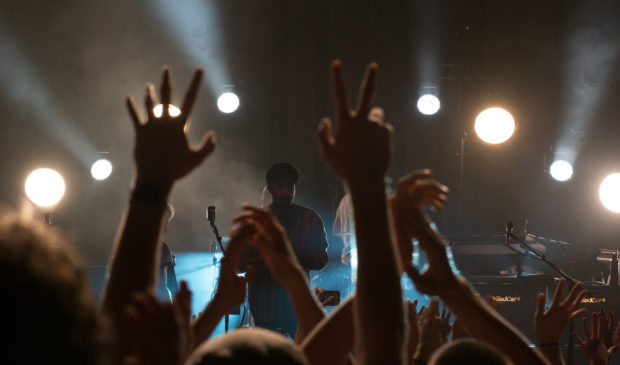‘Downtown puzzle’ plan sets aside millions for Austin music
Wednesday, September 6, 2017 by
Chad Swiatecki City Council endorsed one new plan for hotel occupancy taxes last week. At the end of this month, it will take up another. Last Tuesday’s release of Mayor Steve Adler’s Initial Financing Framework for Downtown Investments – known colloquially as his “downtown puzzle” plan – puts some numbers to a recently simmering idea for the city to inject millions of dollars annually into Austin’s commercial music industry.
The money would be part of a 2 percentage-point increase in the city’s Hotel Occupancy Tax, much of which would be used to fund the expansion of the Austin Convention Center. So-called overflow funds from the tax increase are projected to generate $3.1 million for commercial music in the first year of implementation, with that amount expected to grow as the area’s hotel revenues increase.
State law limits use of HOT revenue to cover expenses related to tourism promotion, and with the money only at the proposal stage Adler said there’s been no substantial discussions on how it could best be used.
Those decisions would first be handled by city staff if Council approves a resolution supporting the downtown puzzle framework in a vote expected for late September.
Following that approval, staff members would have until the end of the year to study and generate ideas for how the funds would be used and allocated, with a community group or task force also a possible part of the process.
“My sense is so long as the money is directed at tourism-related uses then we have a fairly wide berth with how it can be used,” Adler said. “We know it can’t be used on capital expenditures for something like buying a (venue) property but at this point how it will be used hasn’t been determined. What we do know is there’s more (needs) to spend it on than what will be raised.”
The music industry funding suggestion was a product of the city’s Visitor Impact Task Force, which spent the first half of the year studying how to better use HOT revenue and wound up supporting the convention center expansion as a way to free up money for other community needs. One such need is improving the earning power of Austin musicians since the city’s 2015 music industry census found local creatives are losing earning power and being gradually priced out of the city.
Catlin Whitington, a task force member and planning manager for South by Southwest, said he supports programs that can put more money in artists’ pockets and make it easier for them to perform. One idea would see subsidized valet parking for musicians at hotels and restaurants near their gigs, to offset the cost of parking fees, tickets or towing.
“Something simple like that checks some boxes because it furthers the presence of music downtown and affects the bottom line for the working musicians,” he said. “There’s also not enough done to help market up-and-coming musicians as part of the Austin brand, so doing things with PR companies and maybe recording studios to get the music out there more would be a good idea.”
Whitington said what’s most important is that the city create a consistent framework – possibly by incorporating an economic development corporation or a 501(c)(6) entity – so worthwhile ideas for growing music in Austin are heard and fairly evaluated.
“It needs to be community driven, by the music community as a whole, because they’ll be the best brain trust for determining what’s needed and how these funds can be used,” he said. “Anything that gets suggested needs to be quantifiable to show its effectiveness for tourism, and setting up an entity with clear bylaws will keep the group’s mission free from changing Council politics.”
Danny Gillespie, chair of the board for the Austin Music Foundation nonprofit, said programs that can better market Austin music to nearby communities and address the parking and transportation issues that can deter live music fans from going to shows would be useful ways to spend the HOT revenue for music.
“We have a demand problem of fewer people going out to see music, and so we need to do things to make music more accessible,” said Gillespie, who is also the chief information and technical officer for Austin-based Mood Media. “I’d like to get better data on where the people who go to see shows are coming here from, because my sense is many of them are coming here from outside of Austin.”
Gillespie said education programs that can give artists, venue owners and other music industry professionals guidance on best business practices would also produce a long-term effect.
“That kind of money really starts to help some smaller (education) programs move down the field and make a difference in supporting the larger industry,” he said. “The affordability and transportation equation we’re all dealing with is a big challenge, but you can do a lot with a little more funding.”
Photo by Nan Palmero made available through a Creative Commons license.
The Austin Monitor’s work is made possible by donations from the community. Though our reporting covers donors from time to time, we are careful to keep business and editorial efforts separate while maintaining transparency. A complete list of donors is available here, and our code of ethics is explained here.
You're a community leader
And we’re honored you look to us for serious, in-depth news. You know a strong community needs local and dedicated watchdog reporting. We’re here for you and that won’t change. Now will you take the powerful next step and support our nonprofit news organization?




